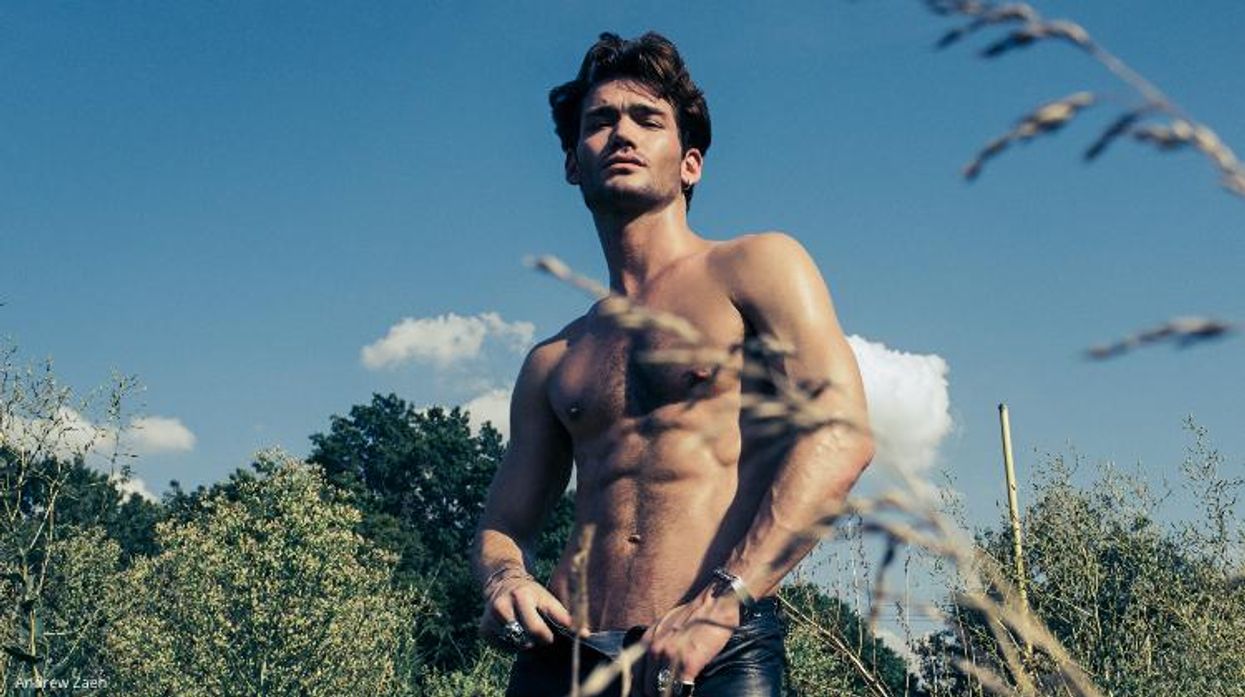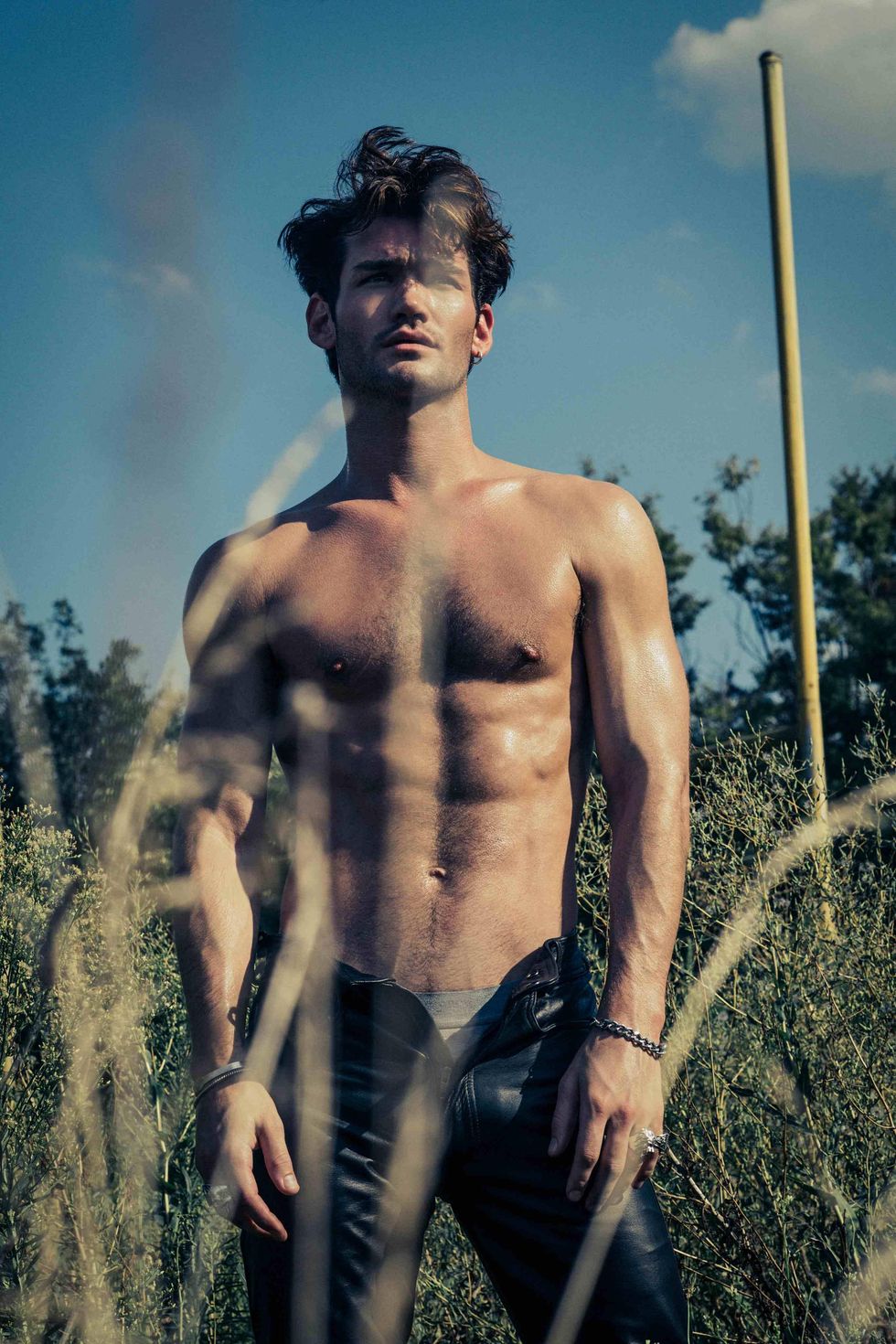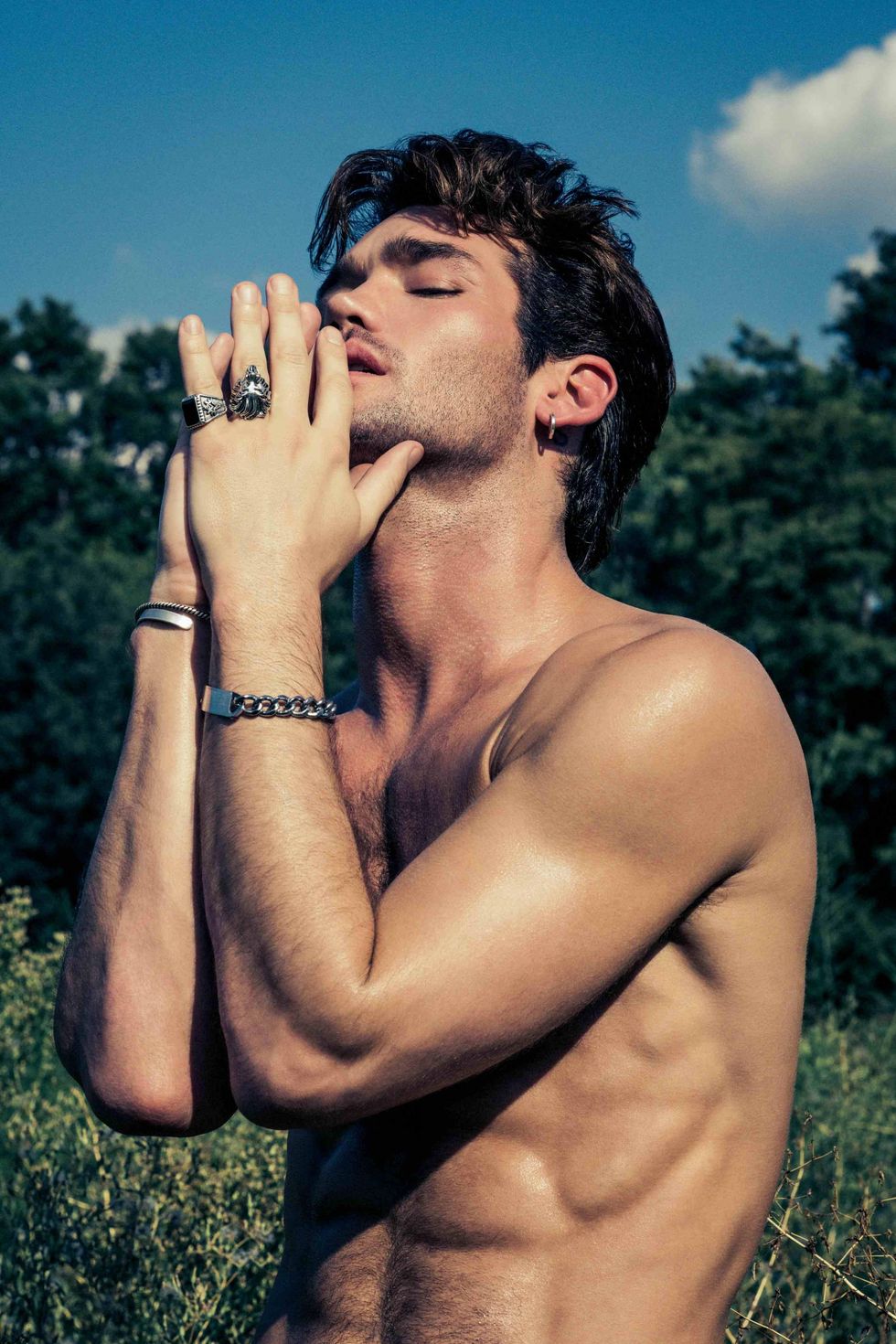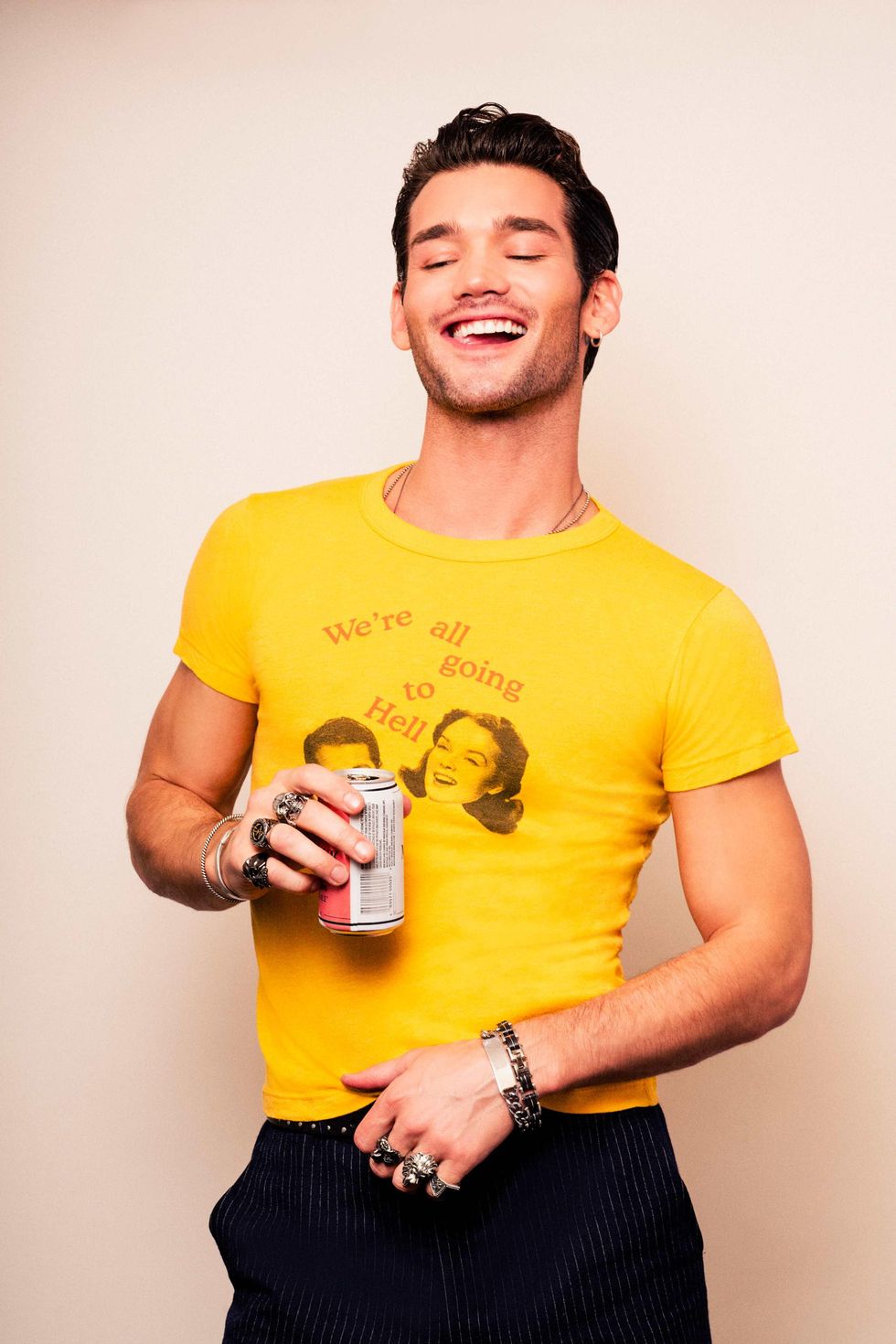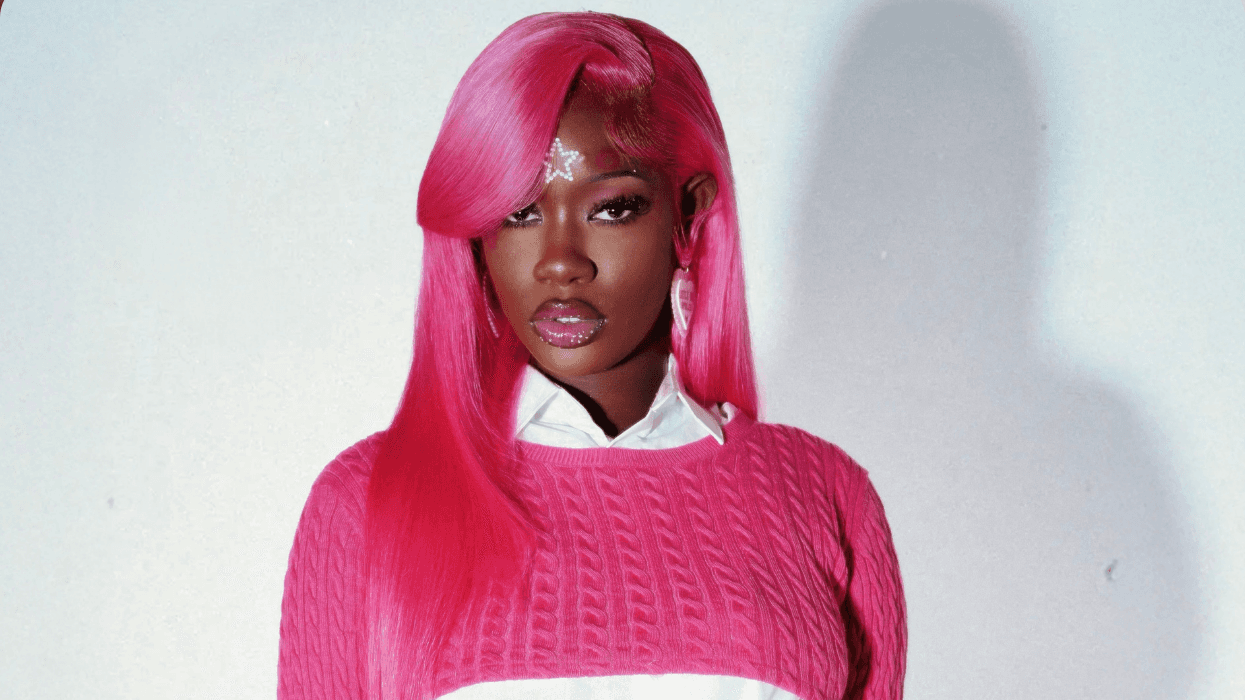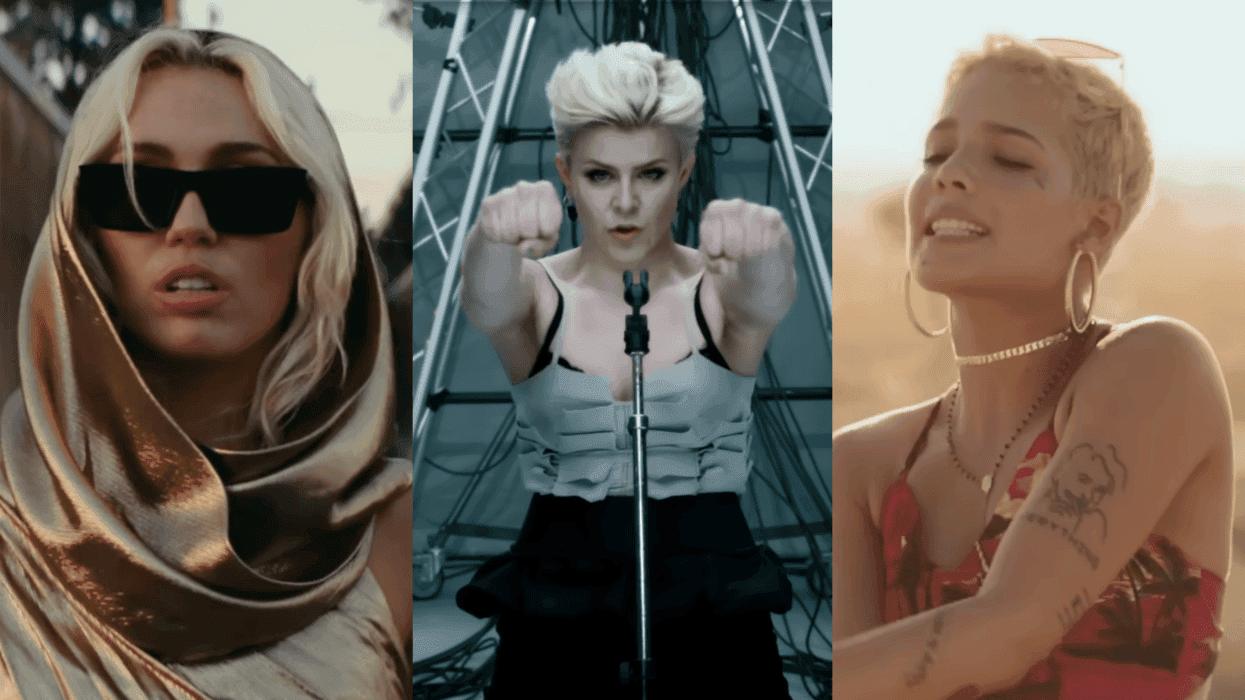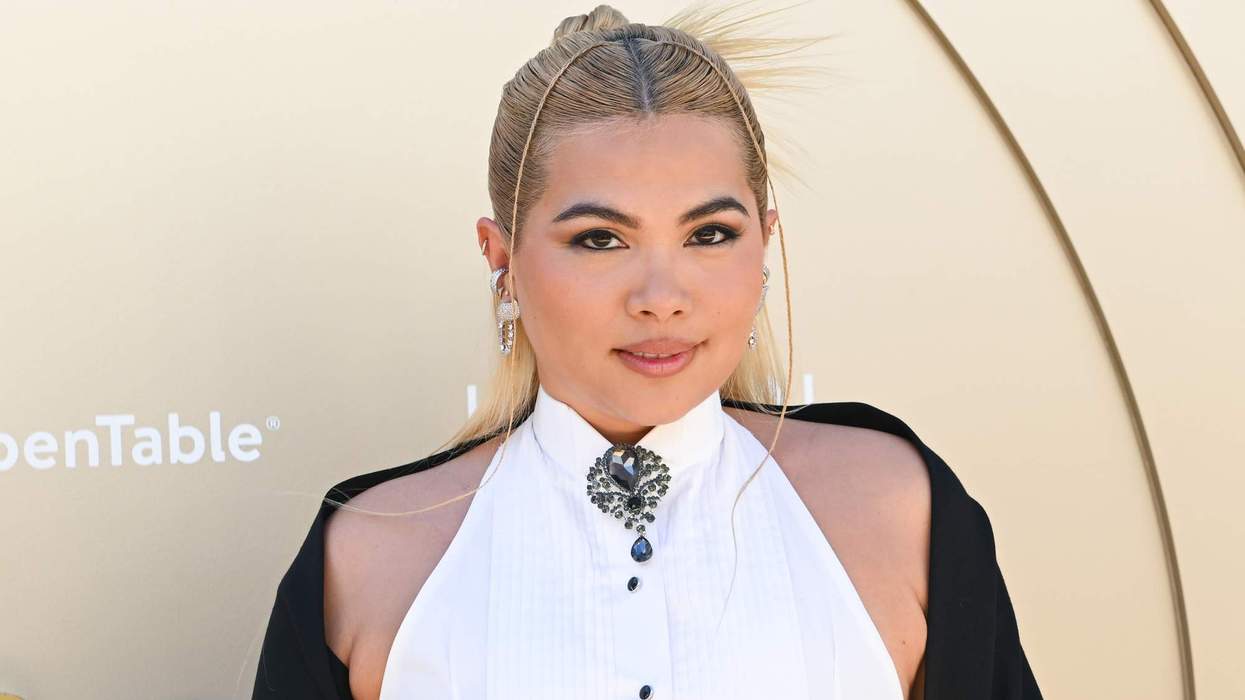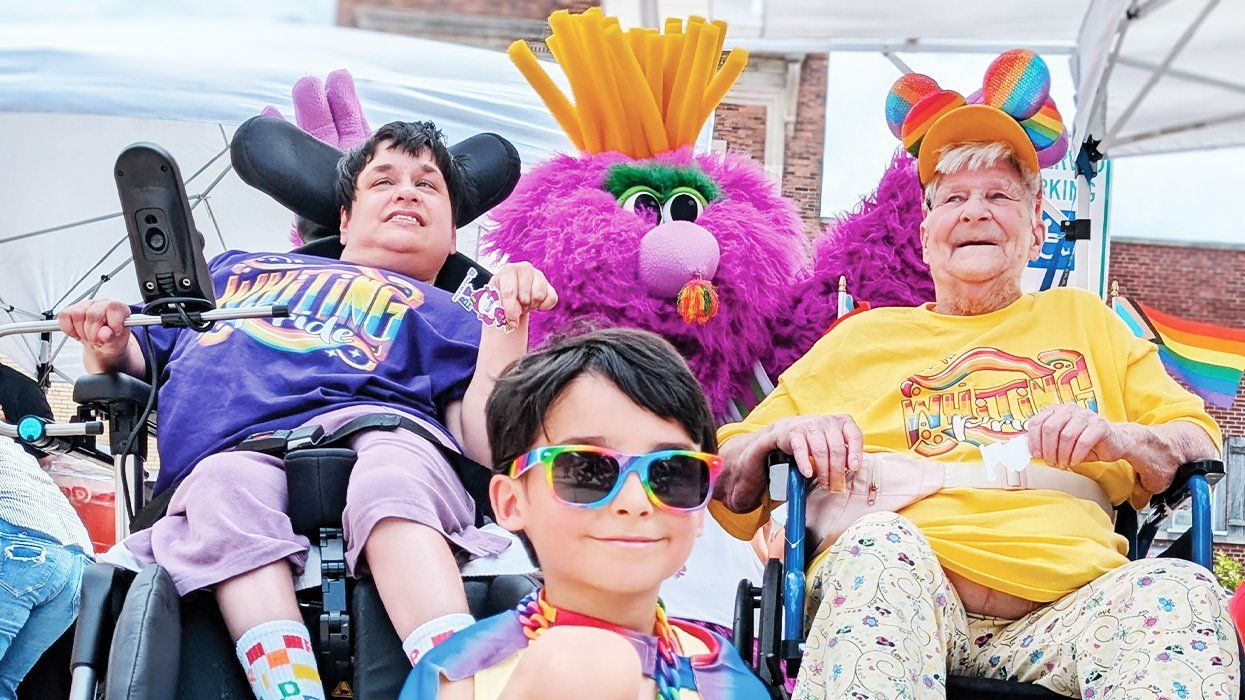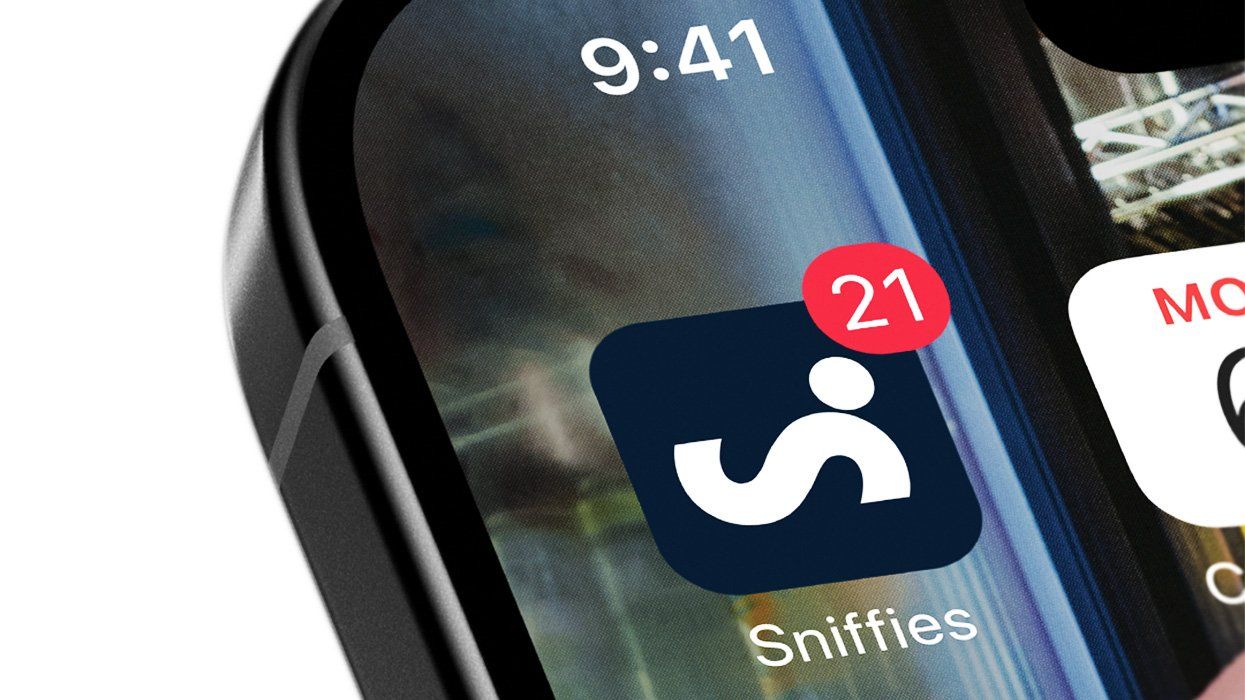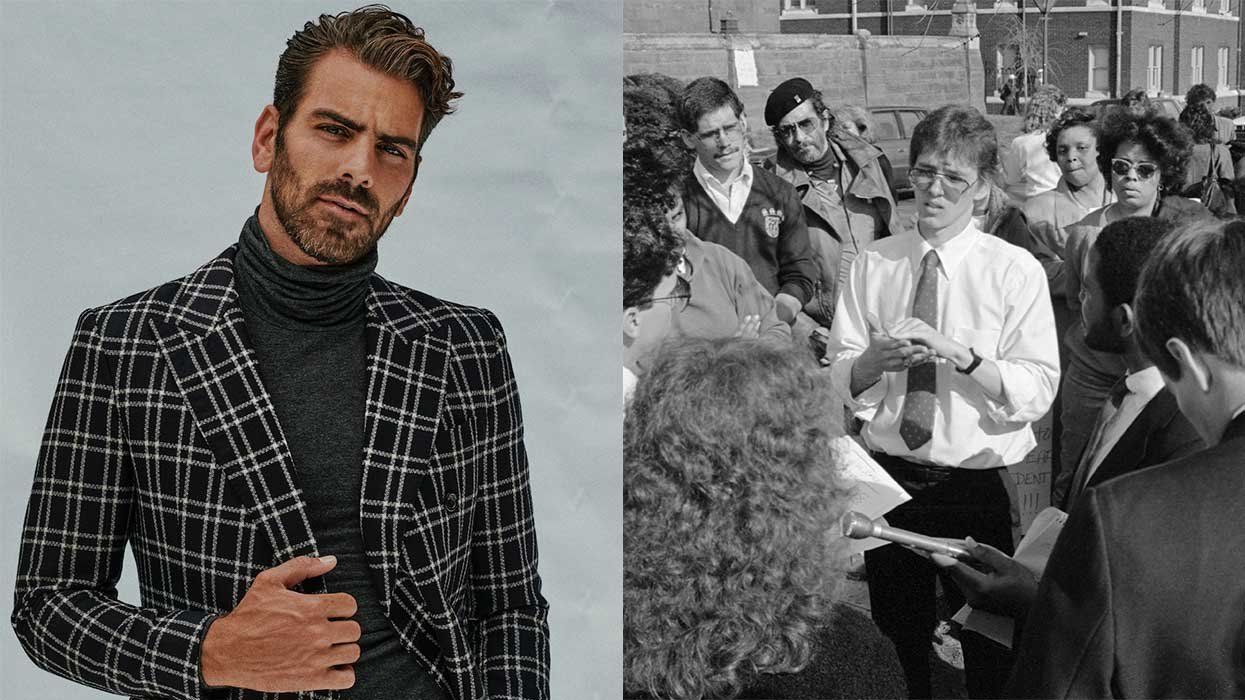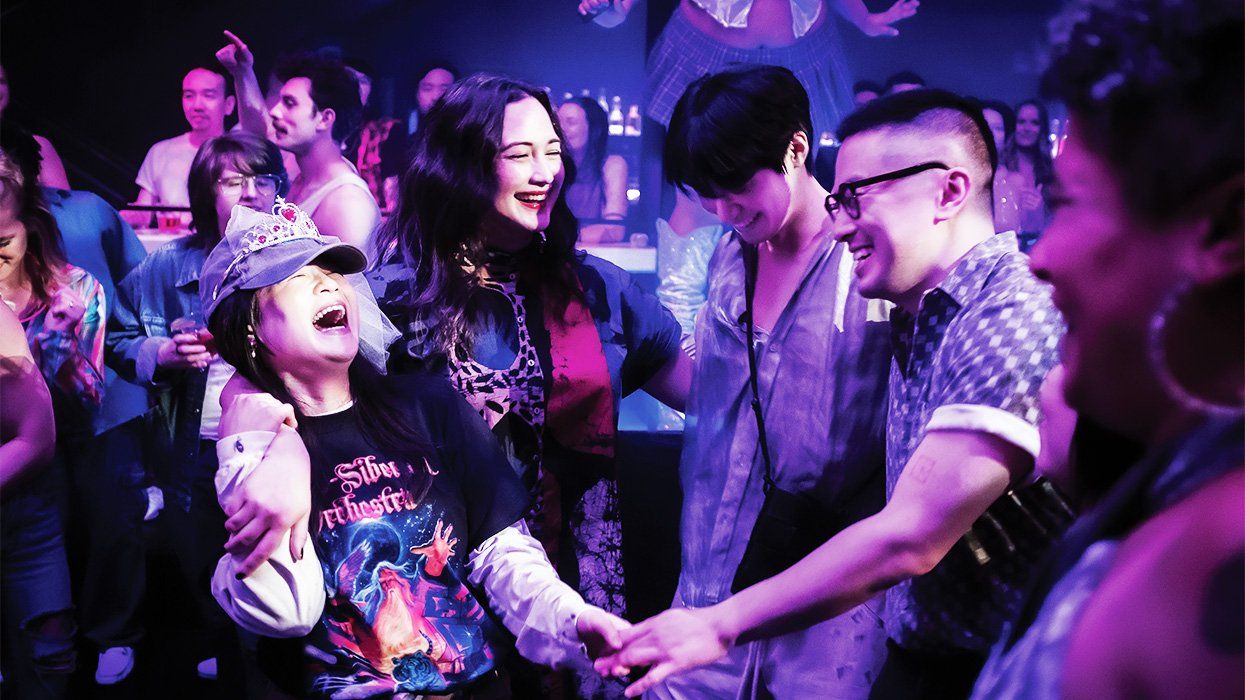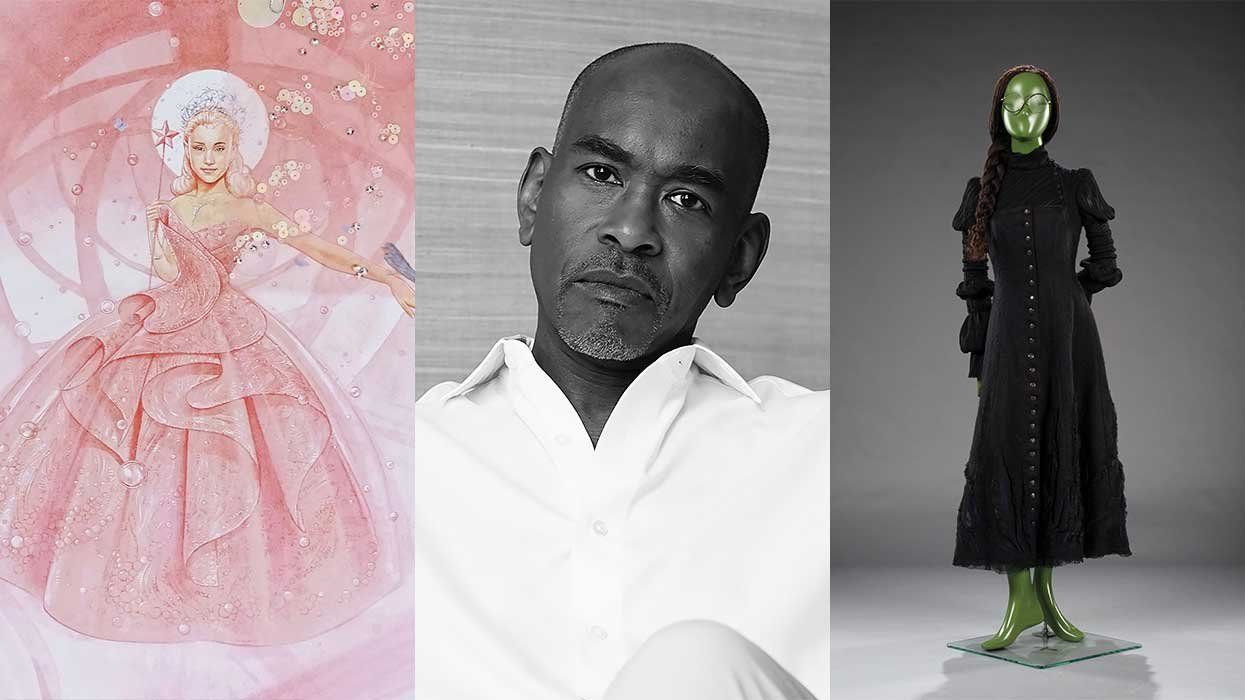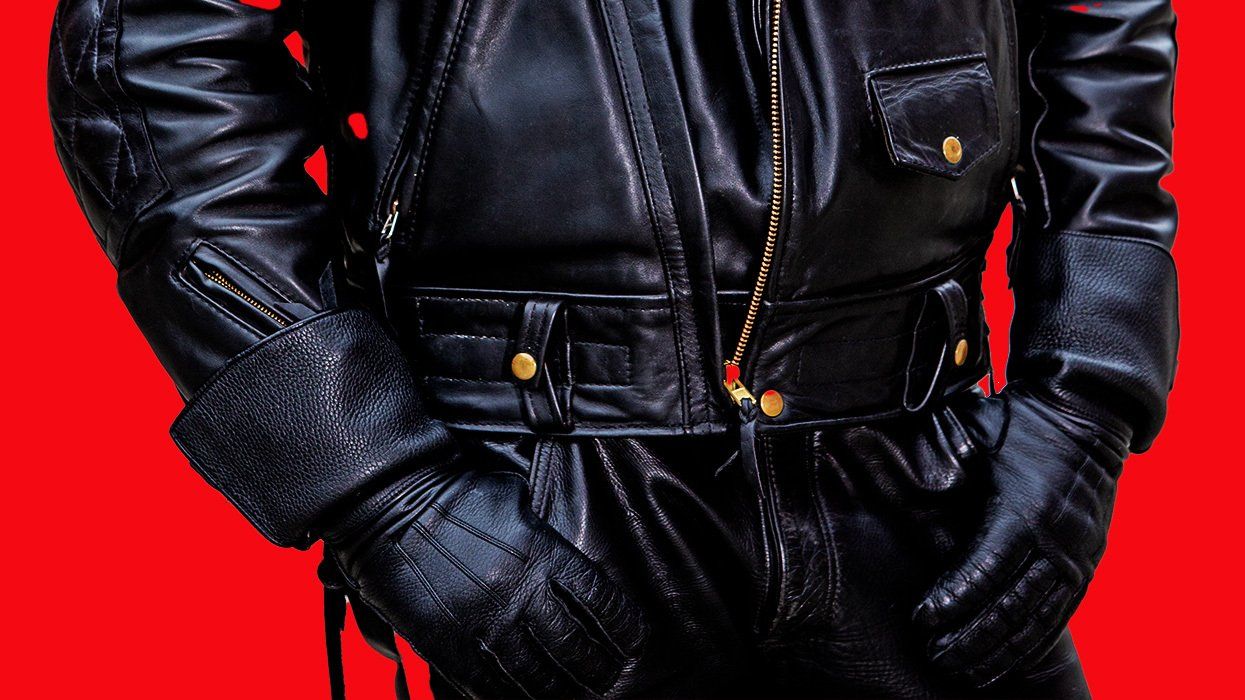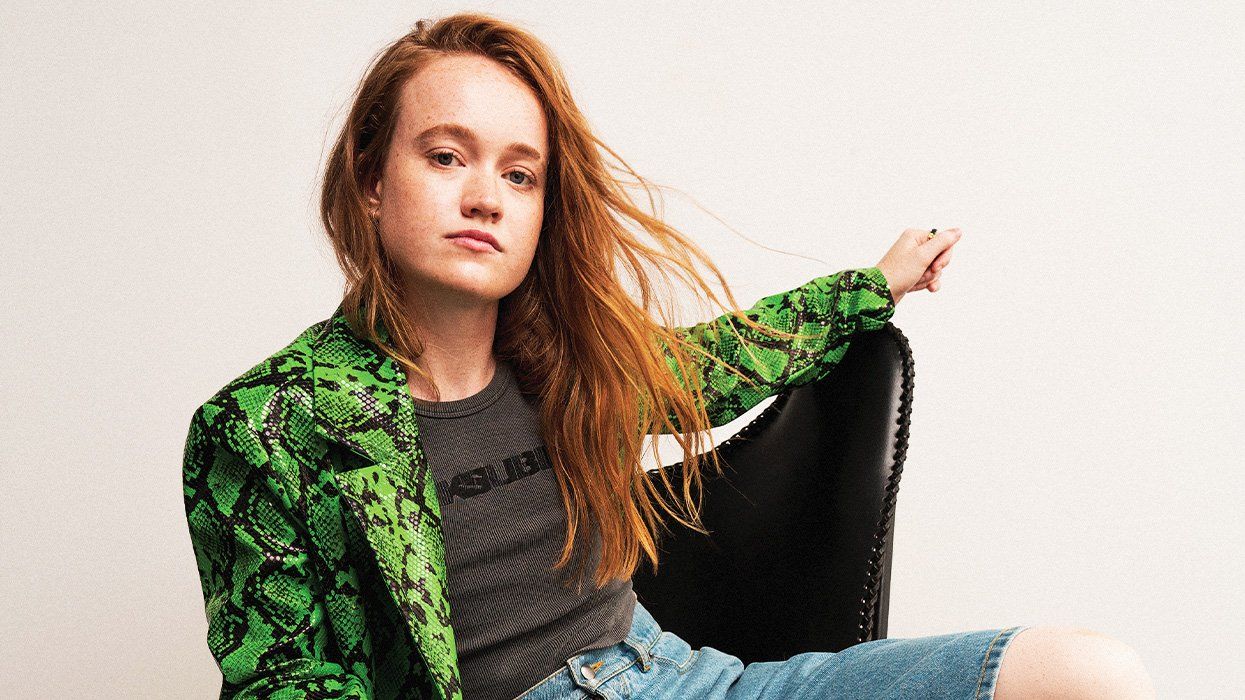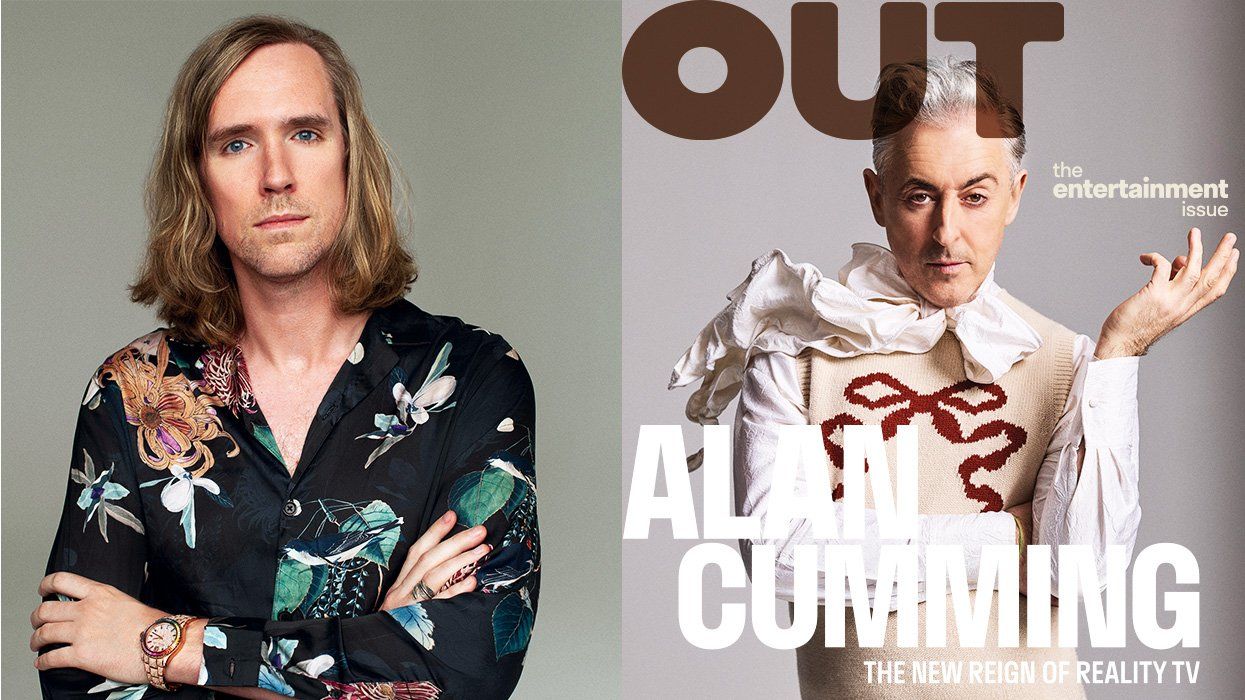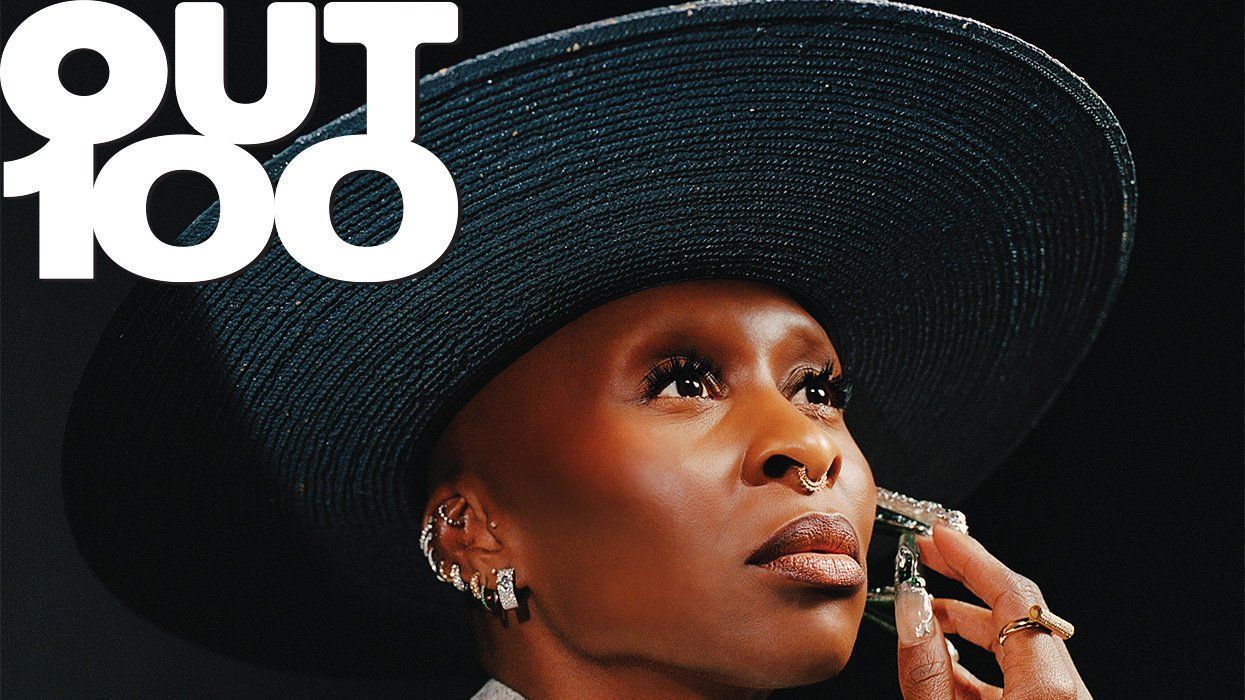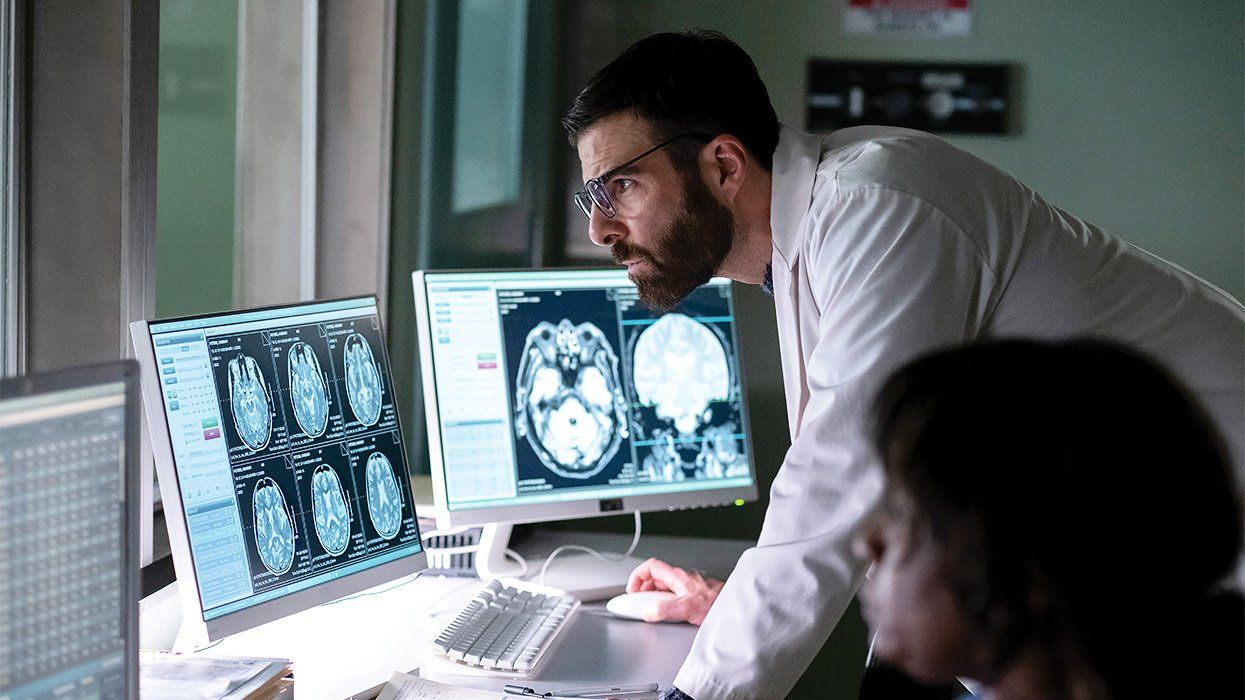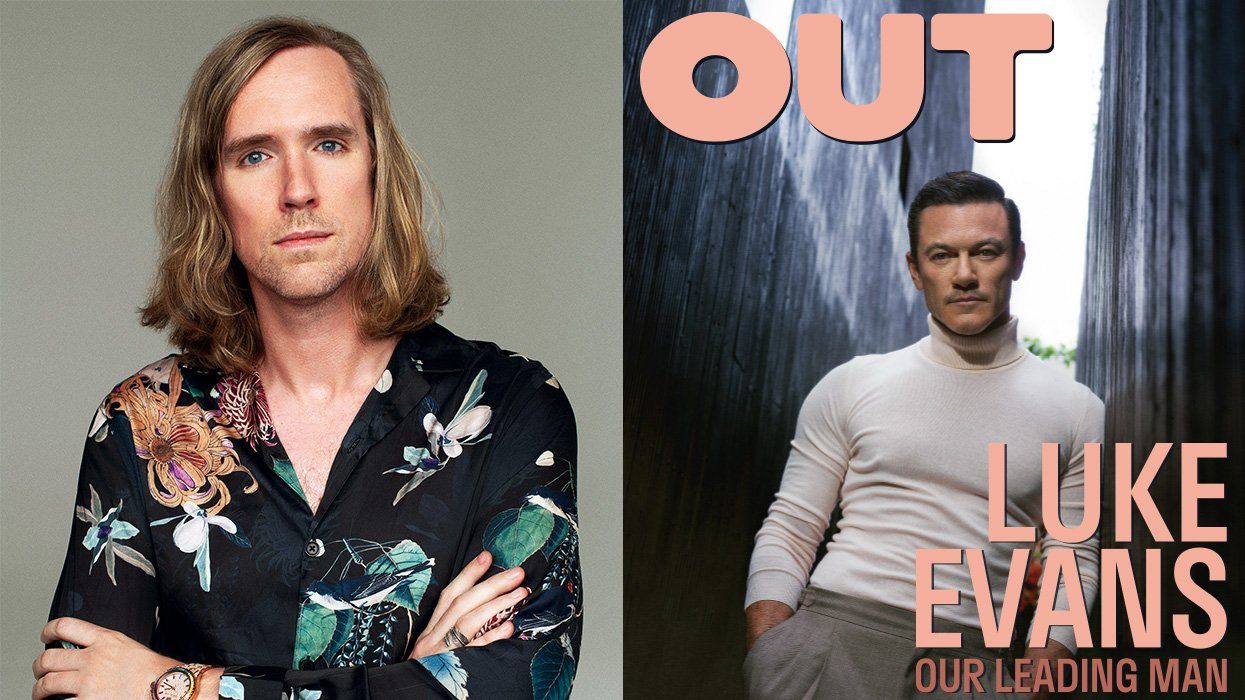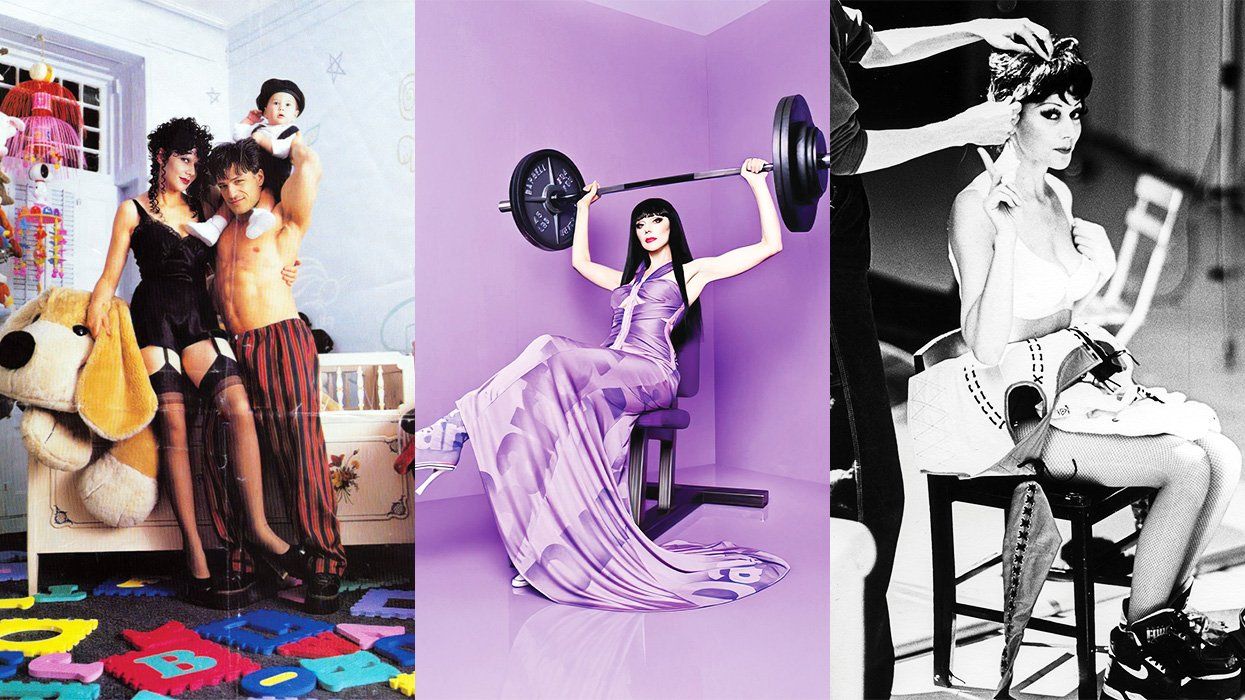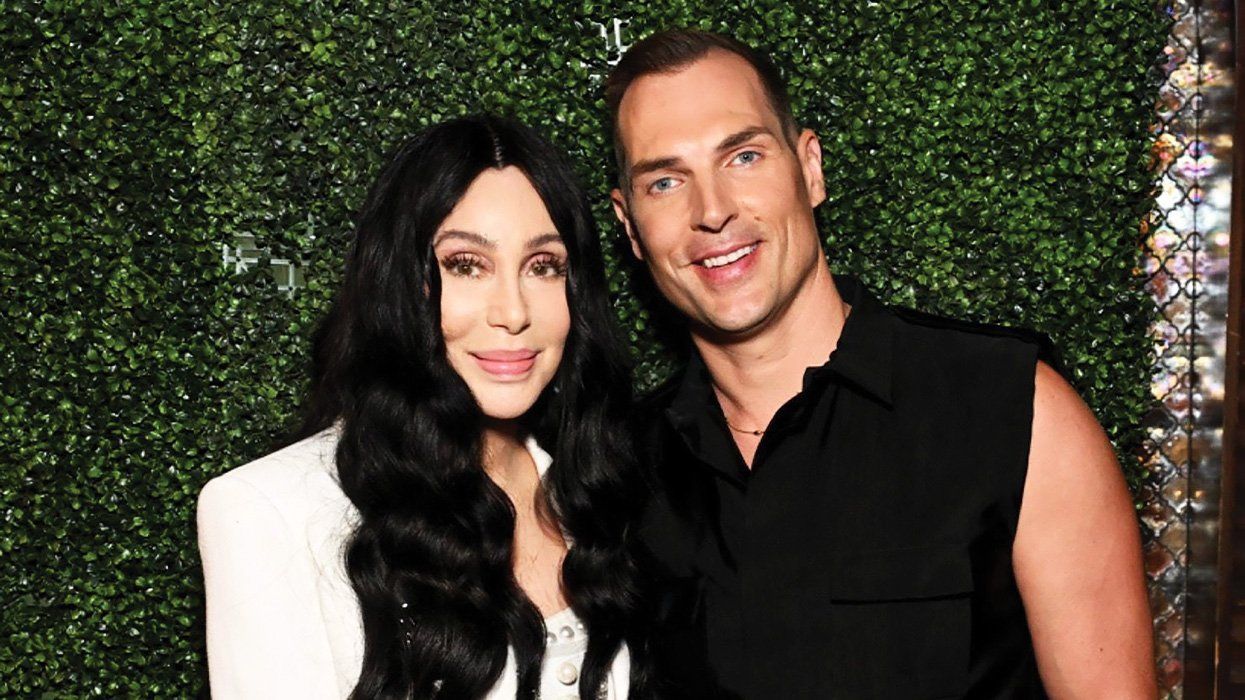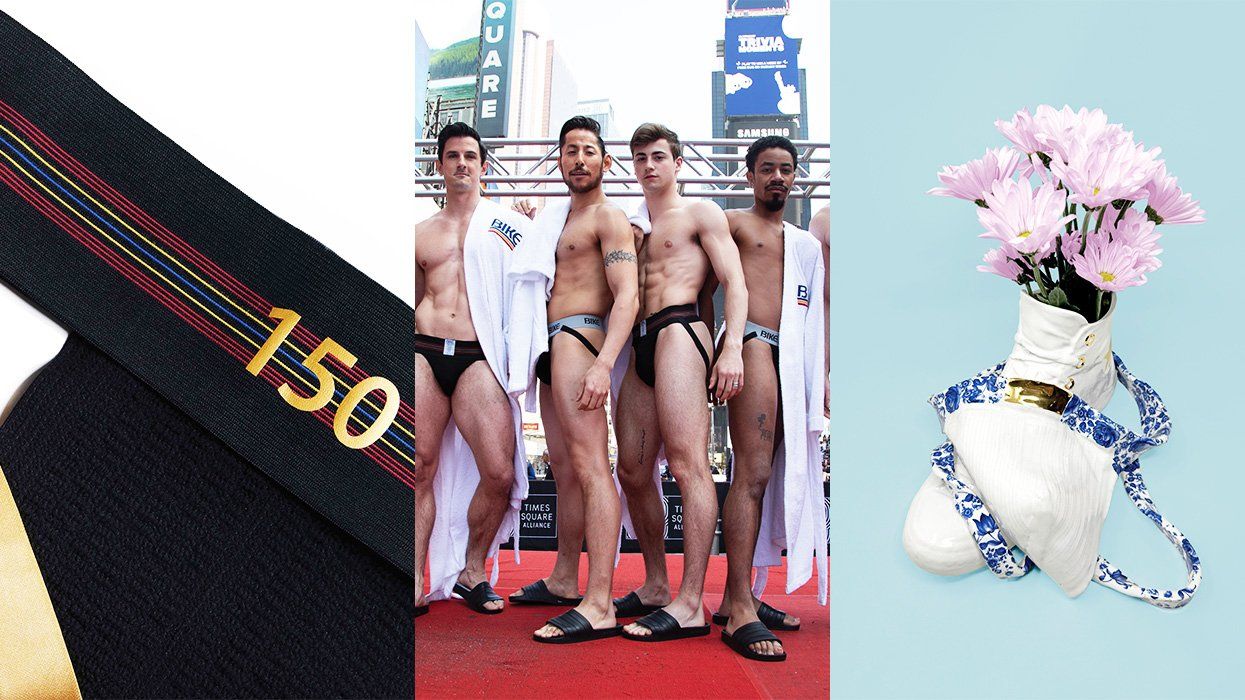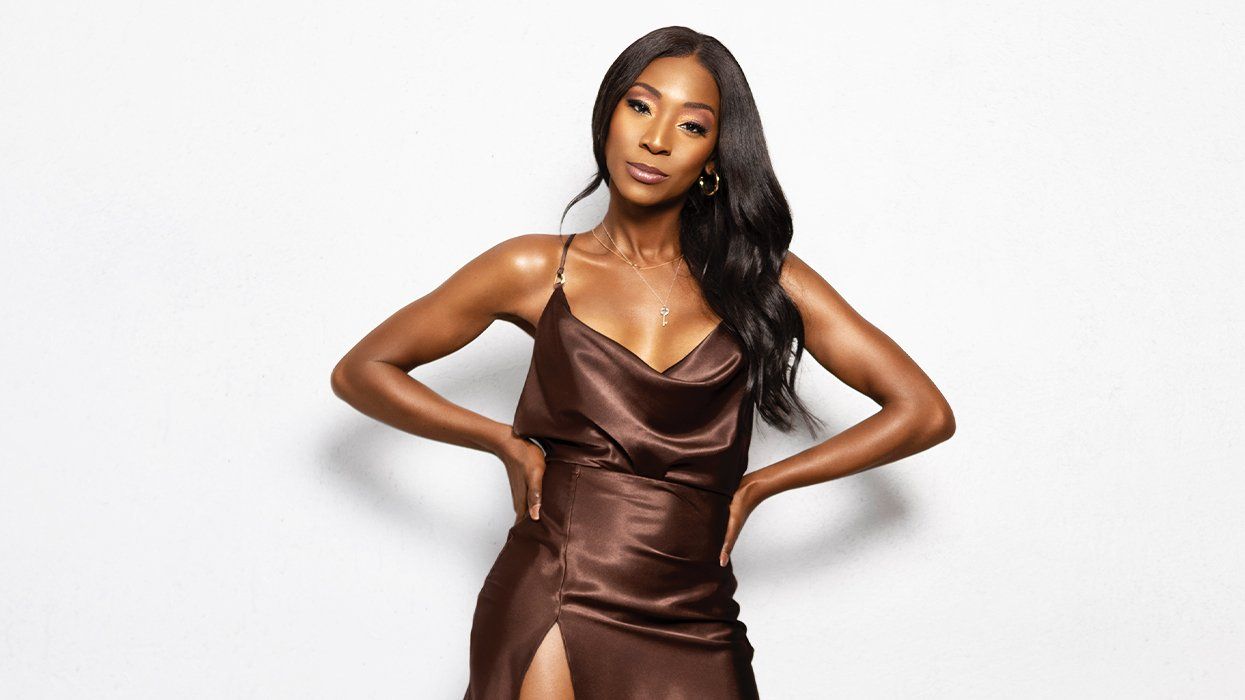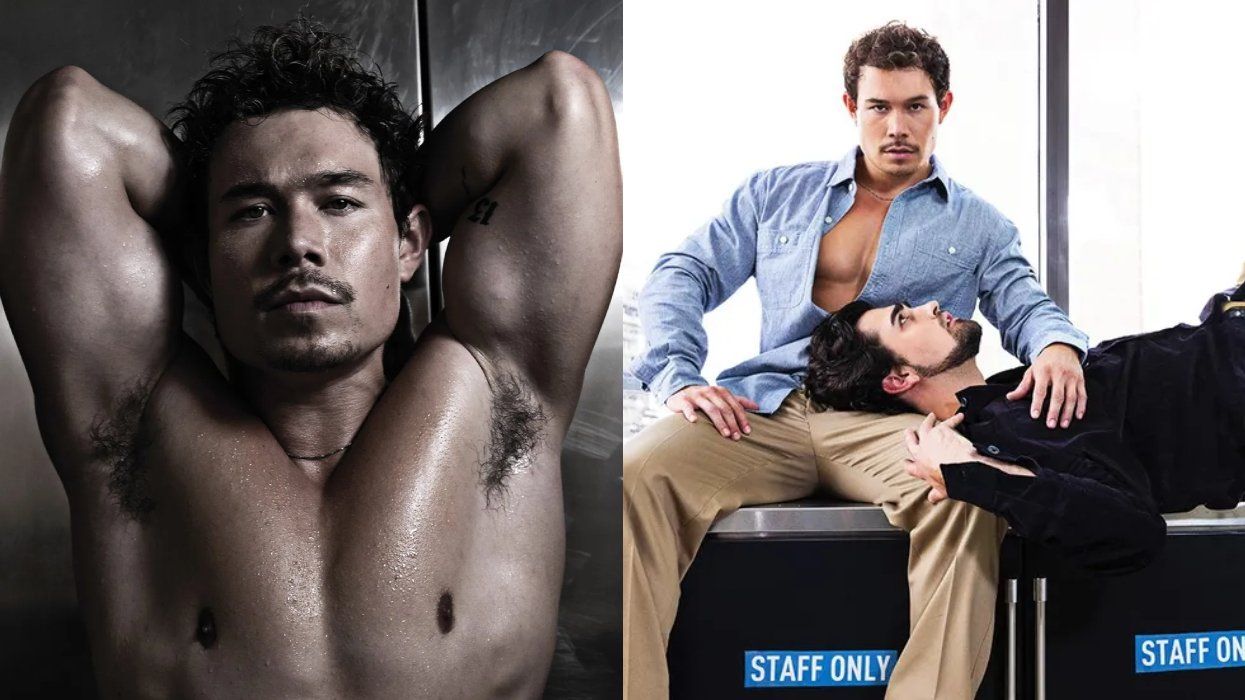Chris K. Fawcett, whose two-person band The More includes guitarist Alex Topornycky, actually researched band names before choosing The More, but missed that it was already the name of a British heavy metal band from the 1980s. No matter, this duo is the one people will remember, especially after Tidal picked The More's first video for their official Pride playlist.
Since New York City shut down due to the pandemic, The More has been making music at home. With the band's new EP, Heart So High, Fawcett says he's "gone more personal, melodic, and structured than the first single and tried to take current pop elements and present them in interesting ways while keeping it moody and chill. I like fresh sounds. My favorite artists simply don't sound like anything out there and that's what I try to present while still feeling familiar."
Out spoke with Fawcett to discuss his album, his addictions, and his hopes for the rest of 2020.
Tell me about your first EP, which comes out in January
I'm so excited! It's brooding, sensual, and textural. The songs are self-produced and very personal.
Unlike most artists, you sing of men specifically.
I intentionally use gendered pronouns for any objects of affection, particularly because it made me uncomfortable when viewed in the light of universality, but if I have the chance to help someone understand their feelings are normal, I want to do that. I didn't want to hide behind the "you"s for the sake of mass appeal.
You've been described as "Billie Eilish replaced by Jim Morrison."
Let's be clear, we don't want to replace Billie. We love her! She visits my dreams and tells me to believe in a higher power. I don't know what she believes, but in one dream, she was playing a
concert at Equinox and had given me a remote to control the light system, and I totally froze. It was awful. She was visibly disappointed, side-eying me from the stage like WTF? I'm sorry Billie!
That's a fan nightmare!
Anyway, Jim Morrison -- with that stunning, edgy baritone howling those mysterious, almost mystical lyrics -- had muse energy, you can see him just overcome with it. It was incredible. Just so much drama in the music and presentation. Then there's Billie Eilish who, I know some people don't get, but Where Do We Go was such a gloriously fresh fuck-you to the pop charts. It's intelligent and morbid and dramatic. She's in your head. And that's how I'd been writing at the time. Odd arrangements, sometimes just downright unpleasant sounding synths, and morbid imagery. It's the drama and the manic energy under the surface that we share, I think, and maybe a little bit of the punk attitude.
I love the sound of your voice, really moody and atmospheric. There's an old-school feel too on some songs, like "July" has elements reminiscent of Depeche Mode's "Master and Servant." Inspiration?
Thank you! Absolutely, but only after the comparisons, and even then it must have been mostly subconscious -- I don't use a lot of references -- breakout projects of the '80s [indie rock] scene in the U.K., particularly The Smiths. But it's never just one moment with music is it? At least for me. I cannot wait to hear the next project that really serves something exciting and fresh, so I'm always looking for that. Though sometimes, you do have to go back to the source to understand what made it so impactful.
Your moody, alt, anti-pop is very cinematic and evocative. Is that queer flourish or do you come by that sensibility some other way?
Maybe it's queer. I mean, of course it is. We are responsible for so many of the things that are beautiful and beloved worldwide, so why wouldn't it be? I'm shooting for transportation, to stir the imagination a bit, maybe even arouse the curious straight boy. I love when I can feel the sun in a song, or the claustrophobia and lack of air in another, so it makes me very happy to hear I could have achieved that in my own music.
Tell me about "Brave & Bold." It's very melodic and moody and anxious at points, befitting these turbulent times. What inspired it?
The first demo told a completely different story. It was about the inability to connect with a person and experience meaningful intimacy, but I realized understanding why was more important. I wasn't in a good place emotionally. I'd isolated myself, rejected most normal routines, and I was partying and getting high more than ever. I was running. Trying to replace the trauma with artificial pleasure, and slowly becoming dependent. That's a very dark and lonely place to be. I wrote "Brave & Bold" to give myself something tangible I could control. The truth. So, it became about addiction. Sonically, I wanted to communicate how it feels to be in a downward spiral, in a cycle of self-destruction.... It's not always pleasant, is it? And then the way it ends -- it's like, "Well what happens?" Well, we don't know. We're still figuring it out. One day at time.
Addiction runs high in the LGBTQ+ community. What has your experience been?
It's no secret the LGBTQ+ community is dealt a unique hand in life. It certainly doesn't feel like a winner when your being taunted and beat or disowned by family. So yes, we are primed for substance abuse. We feel shame, then we use to feel better, and we feel shame for using. I've experienced it. My friends, too. No one is immune. Going back to writing "Brave," that was the worst period of use in my life.
Tell me about that.
It wasn't that I was using a ton. I was actually sober 90 percent of the time. It was how I used. The energy around me. It shut me down. My energy was changing. A light was going out. I didn't want that. I wanted a deeper understanding and love for myself. So, I sought help. But it was devastating and embarrassing because to sit in a Narcotics Anonymous meeting and say those words, "I'm an addict" -- it was like I wasn't a person anymore. Just a step closer to being on the streets. Because that's how we view people who have fallen victim to drugs, right? We see them as dirty, damaged, criminals. No one is trying to get involved with an addict. I couldn't tell my friends, because I was afraid they would shun me and most likely gossip about it. Some of the people I was closest to were also suffering, so they were triggers and not helpful at all. I just kept going to meetings and doing therapy until I caught my balance, forgave myself, and moved on. The meetings are supportive once you get past the fear and the shame. I'm thankful for that experience now.
In many ways, the song seeks to undo a stigma by speaking truth to power.
That's exactly it. The truth should be the easiest thing, but so often it's not the choice we make. The more people that can be vulnerable and ask for help, the more will be helped and then the conversation will change from shaming to healing. We really need to start showing each other more compassion in our community. It's gotten better, but there is still a ton of room for growth.
Tell me about the rest of the EP.
Well, I'm swept away to a far off land with a mysterious figure in "July;" dance all night with a stranger high on the best of drugs -- called chemistry -- in "Flashpoint;" and in "Walk," even as love fades, we find comfort in the simple but beautiful moments that ignited it.
Your album comes out in January. What's your hope for the rest of 2020?
Personally, I hope to continue on the trend of growth and confidence I've found, and help others see that in themselves. It's seeming pretty bleak at the moment, but I pray we can come together as a global community and start focusing on what's really important -- fixing our planet, educating our people. I want the senseless murder of men and women of color to stop, and the killers to be brought to justice. And I hope every single person in the country uses their power to vote in the coming election, so we can start repairing the chasm left by our current so-called leaders. We as people need to get serious and conscious about who we give our money to, who we put in power, where we get our news and information from, and look deeper into how our habits contribute to climate change.
All photography by Andrew Zaeh. Follow Chris on Instagram: @ChrisKMore


